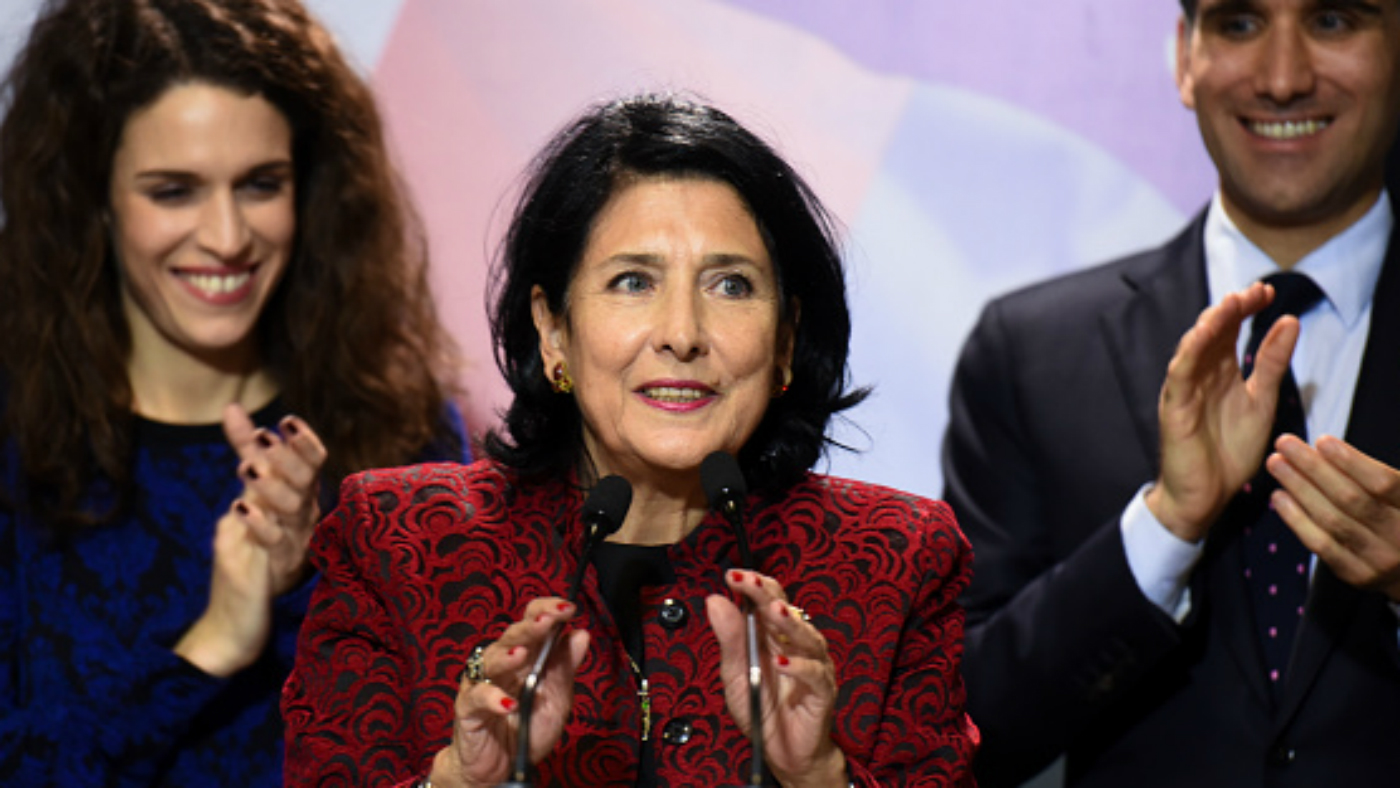Salome Zurabishvili: Georgia elects first female president
French-born former foreign minister wins run-off vote following hotly contested election

A free daily email with the biggest news stories of the day – and the best features from TheWeek.com
You are now subscribed
Your newsletter sign-up was successful
Georgia has elected its first ever female president, in a run-off vote to decide a hotly contested election that will shape the country’s future relations with Russia and the West.
The Eastern European nation’s Central Election Commission has announced that Salome Zurabishvili, the French-born former foreign minister, won 59.5% of the vote against her opponent, Grigol Vashadze.
Zurabishvili ran as an independent, but her campaign was backed by billionaire former prime minister Bidzina Ivanishvili’s ruling Georgian Dream party.
The Week
Escape your echo chamber. Get the facts behind the news, plus analysis from multiple perspectives.

Sign up for The Week's Free Newsletters
From our morning news briefing to a weekly Good News Newsletter, get the best of The Week delivered directly to your inbox.
From our morning news briefing to a weekly Good News Newsletter, get the best of The Week delivered directly to your inbox.
Speaking last night, the newly elected president vowed to keep her election platform promise to balance fraught relations between Georgia, Russia and the West.
“Our choice is peaceful Georgia, united country, and of equal citizens”, said Zurabishvili, whose family fled Georgia following the Soviet occupation in 1921.
“Our choice is the dialogue with those parts of society who today have not voted for me and who today don’t agree with us. But we are all citizens of one country. I know very well the price of independence and freedom, because I am the child of the country whose ancestors have sacrificed themselves [for this].”
However, the 66-year-old has faced criticism from opponents who view her as a pro-Russian candidate - a claim that she and the Georgian Dream party strongly deny, the Associated Press reports. Nevertheless, some Georgians “look at her foreign background with suspicion and criticise her for her contention that Georgia started the 2008 war with Russia”.
A free daily email with the biggest news stories of the day – and the best features from TheWeek.com
Observers view this election as a key indicator for Georgia’s 2020 parliamentary elections.“For the Georgian Dream, the stakes are especially high,” said Ghia Nodia, founder of the Caucasus Institute for Peace, Democracy and Development, a Tbilisi-based independent think tank.
The new party was founded by Ivanishvili in 2012 ahead of his successful run to unseat then-president Mikheil Saakashvili.
Shortly after the result was announced last night, Saakashvili appeared on television to urge Georgians to reject the result.
“This is not a legitimate election,” Saakashvili said.
Describing Ivanishvili as “the enemy of the Georgian people at this moment”, the former president warned that this was a “moment when society must take care of its constitution and freedom into his own hands”.
Zurabishvili begins her six-year term at a crucial time for Georgian politics, as the country moves to transfer power into the hands of parliament rather than the president.
The constitutional changes, approved last year, also mean that Zurabishvili will be the final president directly elected by a popular vote. From 2024, presidents will be chosen by a 300-member electoral college of lawmakers.